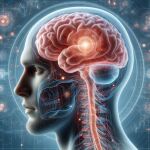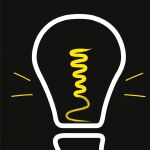Music heals: singing repairs the brain after a stroke
According to researchers from the University of Helsinki in Finland, singing rehabilitates speech production in post-stroke aphasia: the rehabilitative effect of singing on the brain....
Table of Contents
- Music and Neuroplasticity
- Improvements in language network pathways
- Singing: an affordable and effective therapy
Follow Patricia Alegsa on Pinterest!
Strokes, also known as cerebrovascular accidents, are the most common cause of aphasia, a speech disorder of cerebral origin that affects the ability to understand or produce spoken and written language.
It is estimated that around 40% of people who have suffered a stroke develop aphasia. Additionally, approximately half of them continue to experience aphasia symptoms one year after the initial attack.
The rehabilitative effect of singing on patients with aphasia underscores the incredible neuroplasticity of the human brain and its ability to adapt and repair itself.
Music and Neuroplasticity
Researchers from the University of Helsinki have discovered that music, specifically singing, can help in the recovery of language in patients affected by stroke.
A recent study, published in the prestigious journal eNeuro, has revealed the reason behind this rehabilitative impact of singing.
According to the findings, singing "repairs" the structural language network in the brain. The language network is responsible for processing speech and language in our brain, and in patients with aphasia, this network has been damaged.
University of Helsinki researcher Aleksi Sihvonen stated that “for the first time, our findings demonstrate that the rehabilitation of patients with aphasia through singing is based on neuroplasticity changes, that is, brain plasticity.”
Improvements in language network pathways
The language network encompasses cortical regions of the brain involved in language and speech processing, as well as white matter tracts that transmit information between different points of the cortex.
According to the study results, singing increased the volume of gray matter in the language regions of the left frontal lobe and improved the connectivity of tracts, especially in the language network of the left hemisphere, although improvements were also observed in the right hemisphere.
The scientist said, “These positive changes were associated with better speech production in the patients.”
A total of 54 patients with aphasia participated in the study, of which 28 underwent MRIs at the beginning and end of the study. Researchers used choral singing, music therapy, and singing exercises at home as methods to investigate the rehabilitative effect of singing.
Singing: an affordable and effective therapy
Aphasia has a significant impact on the functional ability and quality of life of affected individuals, and can easily lead to social isolation.
In this context, AleksiSihvonen argues that singing can be seen as a cost-effective addition to conventional forms of rehabilitation, or as a treatment for mild speech disorders in cases where access to other types of rehabilitation is limited.
"Patients can also sing with their families, and singing can be organized in healthcare units as a group and affordable rehabilitation," Sihvonen points out.
In a world where access to medical treatments can be limited, singing represents an accessible and effective option to improve the quality of life of many individuals affected by this language disorder.
As we continue to explore the connections between music and brain health, we can expect to discover more innovative and cost-effective ways to help those in need.
Source: Helsinki.fi
Subscribe to the free weekly horoscope
Aquarius Aries Cancer Capricorn Gemini Leo Libra Pisces Sagittarius Scorpio Taurus Virgo
-
 The heatwaves and pregnancy: the care you should take
The heatwaves and pregnancy: the care you should take
Pregnant women should take special care in the face of the heatwaves that are occurring in different parts of the world. We spoke with an expert. -
 Why do aerosol insecticides fail against cockroaches?
Why do aerosol insecticides fail against cockroaches?
Aerosol insecticides do not eliminate all cockroaches, especially German ones. Scientists from Kentucky and Auburn emphasize the need for new control strategies. -
 Review of Joker 2, a bold but boring film
Review of Joker 2, a bold but boring film
Review of 'Joker: Folie à Deux': a bold but failed sequel. Joaquin Phoenix tires and Lady Gaga provokes indifference. Discover why! -
 Climate change will affect 70% of the world's population: Recommendations
Climate change will affect 70% of the world's population: Recommendations
Discover how climate change will affect 70% of the world's population in the next two decades, according to researchers from Norway and the United Kingdom. Stay informed! -
 Discover the medicinal plant that detoxifies the liver and improves sleep
Discover the medicinal plant that detoxifies the liver and improves sleep
Discover the medicinal plant that detoxifies the liver and fights insomnia. An ideal natural remedy to enhance your well-being. Get to know it!
I am Patricia Alegsa
I have been writing horoscope and self-help articles professionally for over 20 years.
Subscribe to the free weekly horoscope
Receive weekly in your email the horoscope and our new articles on love, family, work, dreams and more news. We do NOT send spam.
Astral and numerological analysis
-
 Discover your future, secret personality traits and how to improve in love, business and life in general
Discover your future, secret personality traits and how to improve in love, business and life in general
-
 Online Dream Interpreter: with artificial intelligence
Do you want to know what a dream you had means? Discover the power of understanding your dreams with our advanced online dream interpreter using artificial intelligence that responds to you in seconds.
Online Dream Interpreter: with artificial intelligence
Do you want to know what a dream you had means? Discover the power of understanding your dreams with our advanced online dream interpreter using artificial intelligence that responds to you in seconds.
-
 Lemon verbena tea: relieves stress and aids digestion
Lemon verbena tea: relieves stress and aids digestion
Hey, tea lover! Today I bring you the freshest gossip from the world of herbs: lemon verbena tea, also known as cedron. -
 Stroke in Young People and Women: Why Are Cases Increasing Globally?
Stroke in Young People and Women: Why Are Cases Increasing Globally?
Warning! Stroke cases are rising in young people and women. Stress, diabetes, hypertension, and pollution are the culprits according to studies in The Lancet and AHA. -
 Zinc and Vitamins C and D Supplements: Keys to Your Health
Zinc and Vitamins C and D Supplements: Keys to Your Health
Discover the best zinc, vitamin C, and D supplements to strengthen your health and prevent infections. Optimize your well-being today! -
 Feeling angry? Use this Japanese technique to calm down
Feeling angry? Use this Japanese technique to calm down
How to Get Rid of Anger: A Psychology-Based Approach and Japanese Practices. -
 Shocking: his own pet disfigured him!
Shocking: his own pet disfigured him!
A tragedy transformed Ben Horne's life after an attack by his pet Henry during an epilepsy episode. It contains SENSITIVE IMAGES. -
 COVID-19: Increase in cases and persistent symptoms that worry the WHO
COVID-19: Increase in cases and persistent symptoms that worry the WHO
COVID-19 remains a threat: the WHO warns about the rise in cases and the persistent symptoms affecting millions. Get informed here! -
 How Exercise Can Reduce Abdominal Fat: Revealing Results
How Exercise Can Reduce Abdominal Fat: Revealing Results
Discover how regular exercise transforms abdominal fat. Research reveals surprising results in people with obesity. Don't miss it! -
 What does it mean to dream of lights?
What does it mean to dream of lights?
Discover the meaning of your dreams with lights: do they represent hope or sadness? Find the answer in our article! -
 Trend of influencers eating eggs with shell: What benefits does this bring?
Trend of influencers eating eggs with shell: What benefits does this bring?
Several influencers on Instagram, Facebook, and TikTok are recommending eating boiled eggs with the shell: is this healthy? Does it have any health benefits? -
 Incredible! NASA allows us to see fires around the world in real time
Incredible! NASA allows us to see fires around the world in real time
Look at planet Earth from above: you will see the fire outbreaks that are happening in real time or those that have occurred in the past. Be amazed! -
 Nostradamus' unsettling prophecy: a leader falls and the world on the brink of war before the end of the year
Nostradamus' unsettling prophecy: a leader falls and the world on the brink of war before the end of the year
Nostradamus predicted the collapse of a leader, a global war, and a new currency before the end of the year. Are we on the verge of a historic change? -
 What does it mean to dream of zebras?
What does it mean to dream of zebras?
Discover the fascinating world of dreams with our complete guide: What does it mean to dream of zebras? Decipher the hidden message behind your most recurring dreams. -
 Shocking details about the death of Matthew Perry
Shocking details about the death of Matthew Perry
Actor found dead in his jacuzzi: suffered cardiovascular overstimulation and respiratory depression due to ketamine and buprenorphine. Causes of his tragic death.